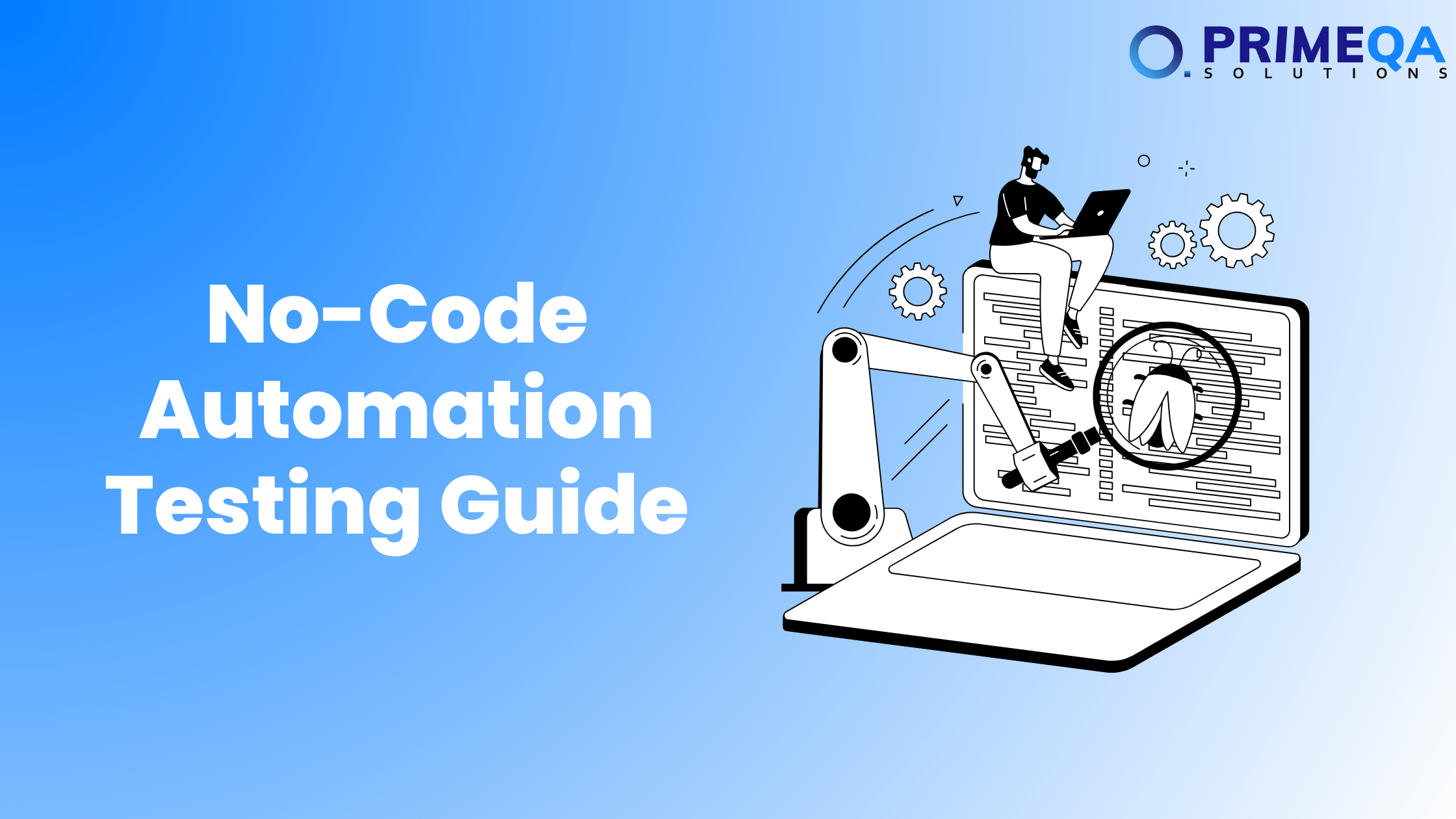Within the high-pressure digital environment where development cycles are getting longer and customer demands are getting higher, effective, dependable testing is required. Automation testing enables guaranteed caliber, dependability, and scalability of software programs. Historically, automation testing was held to be associated with complex coding and scripting and required experts knowledge and resources. However, the environment is rapidly shifting and making it much more user-friendly, allowing non-technical persons to enjoy the facility of no-code automation testing technologies.
Understanding No-Code Automation Testing
No-code automation testing, thus, means automating the test process in a manner where code writing or scripting is minimized, although the tester, quality assurance professionals, or even business users will sometimes end up creating, running, and maintaining test cases in an intuitive graphical interface and drag-and-drop functionalities. This democratizes the testing process, allowing faster test creation, easier maintenance, and more participants across the development lifecycle.
How is No-Code Automation Testing beneficial ?
Availability: Since no coding knowledge is necessary, no-code automation testing lowers entrance barriers. Test cases are simple to conduct and execute for any domain expert who has a basic awareness of testing concepts.
Efficiency: No-code automated testing speeds up the testing process and minimizes much human hand holding. This helps teams to discover and fix problems much earlier in the development cycle.
Value for money: Typical automated testing requires a lot of money in terms of highly skilled employees and complex frameworks. Since no-code solutions don’t require the expertise of such a specialist and can easily reuse existing people, the level of investment is reduced.
Scalability: The no-code automation testing solutions effortlessly allow the teams to control large test suites and scale up or down as the requirements of the project change, using the user-friendly interfaces and reusable components.
Collaboration: Since no-code testing platforms include features like shared repositories and real-time visibility into test results, end-to-end collaboration across cross-functional teams is one of the no-code testing platforms’ key benefits, being extremely collaborative by nature.
Key Considerations for No-Code Automation Testing
As tempting as the advantages of no-code automation testing seem, it’s critical that adoption be approached thoughtfully and strategically to maximize its benefits. here are some consideration :
Tool selection : It is important that the initial step should consist of a deep analysis and study of no-code automation testing tools that best suit the particular needs of your company; in this case, this entails selecting tools that have an in-depth no-code automation testing tool background in terms of usability, scalability, and integrations with other test types, among others.
Training and Support: Invest in comprehensive training and ongoing support that equips users with the skill and knowledge to profitably make use of no-code testing tools.
Test Strategy: Develop a strong test strategy that targets your organization’s goals and objectives. Identify where automation testing will bring the most value and prioritize it.
Quality Assurance: Even though no-code testing tools drastically simplify test creation, maintaining focus on quality assurance, like test coverage, data management, and test result analysis, remains paramount.
Integration with DevOps: Integrate no-code automation testing into your DevOps workflow and embed continuous testing and rapid feedback loops.
Read this article to know about objectives of Software Testing.
Best Practices for No-Code Automation Testing
To get the best value of the automation testing of best practices needs to be followed:
Begin small: To get accustomed to the tool and see if it fits the business, start dabbling in small projects or initiatives.
Work in flow with other teams: Development, testing, and business teams need to collaborate to ensure a proper alignment and a higher impact from automation testing initiatives.
Leverage constructing pieces as often as you can: Build as many reusable test cases and other building blocks as you can to avoid boring work and improve maintainability.
Monitor and Iterate : The fact that continuous optimization and efficiency shall really pay off is evident when you review the test results and pay attention to areas of improvement and refine your testing methodology
Stay updated : Keep an updated idea of the latest features and advancements, features, and trends in no-code automation testing.
Conclusion
The no-code automation testing approach offers a shift in the paradigms of testing and implementation—a user-friendly alternative to traditional coding-centric approaches. Encouraging teams with user-friendly tools and procedures and demonstrating testing may increase software quality, accelerate software delivery cycles, and, most importantly, enhance customer experiences. No-code automation testing can open new opportunities to advance your career in software development and pave a new path for innovation and progress.







